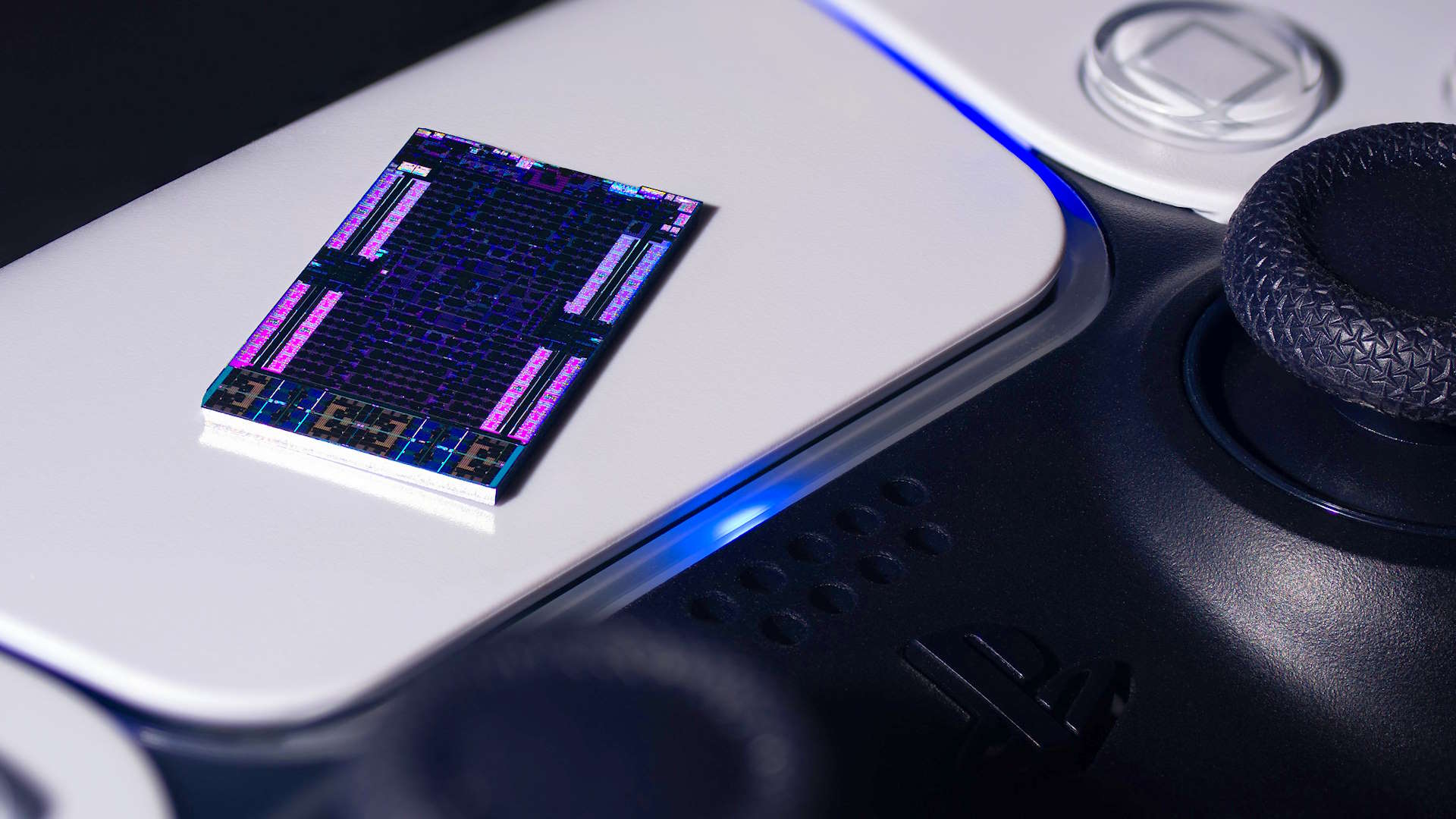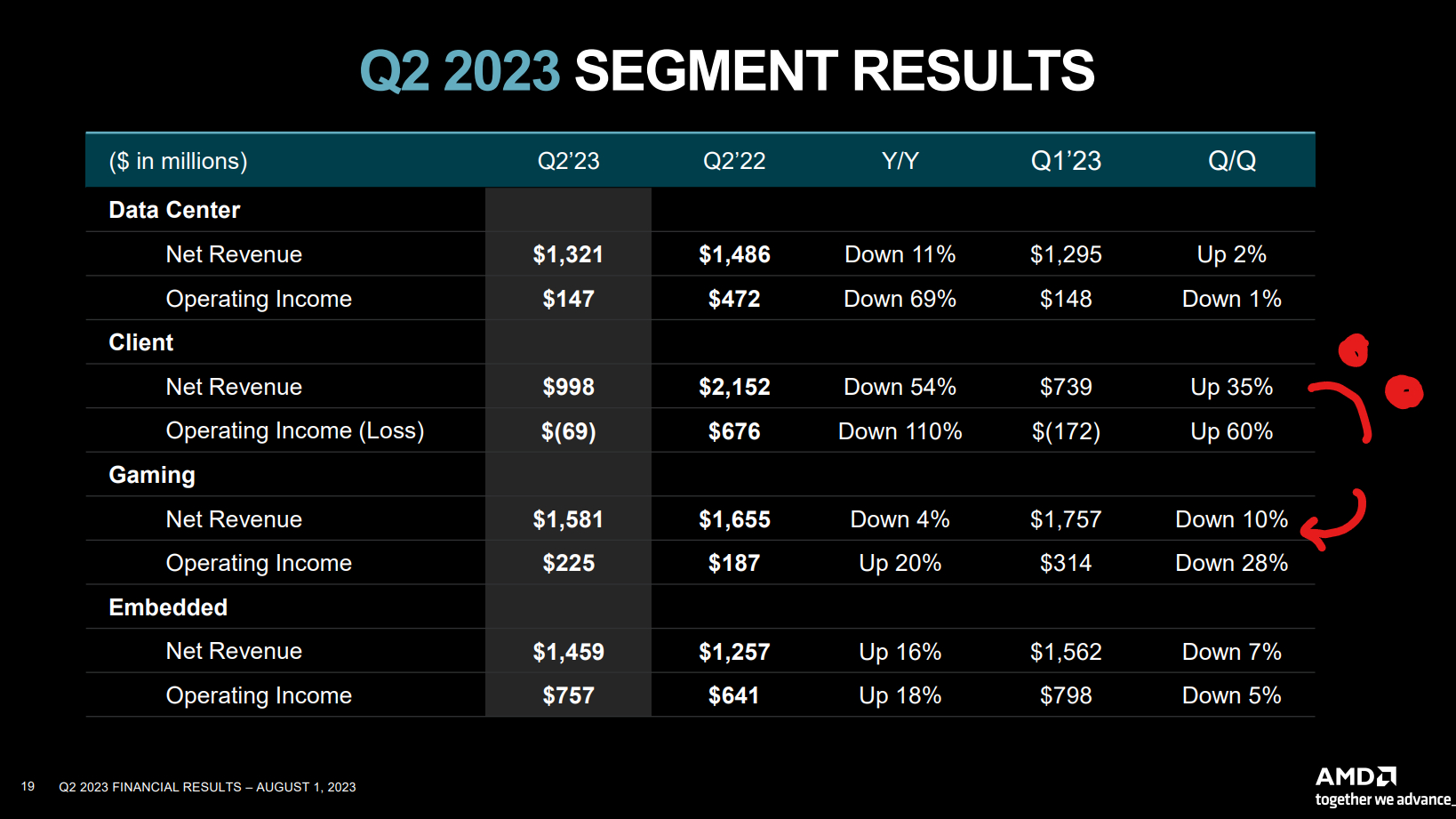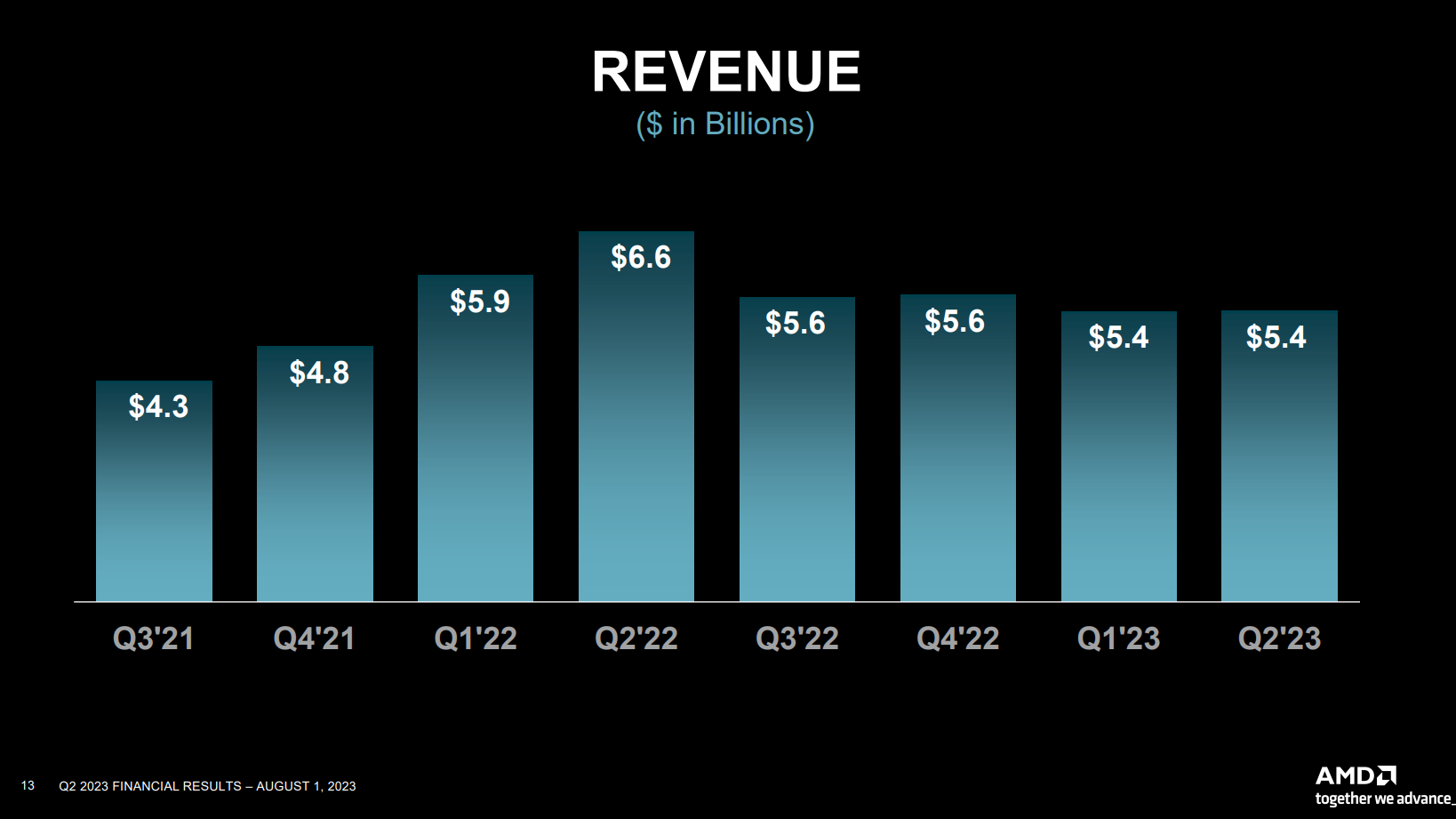
AMD has released its Q2 financials and while it is better news than estimates were predicting, it still tells a sorry story for its GPU division. The gaming segment of AMD's business is still profitable, and all that is down to the work it has put into bagging the bragging rights to power both Microsoft and Sony's games consoles.
Both the PlayStation 5 and Xbox Series X/S use AMD semi-custom silicon, and that's part of the company's gaming segment. It's been gaining revenue consistently throughout this year, but, because of the continued decline in Radeon GPU sales, both its revenue and operating income are down compared to its Q1 results, let alone the year-on-year numbers.
We're used to seeing things drop compared to the same period last year, which, for AMD, was the peak of its revenue results potentially ever. The company's revenue was $6.6 billion in Q2 2022, and is $5.4 billion for Q2 this year (aww, boo hoo 😪). But where things seem to be picking up in the data center (thanks to upcoming AI investments in supercomputing), and most especially in the client segment—CPUs and APUs—there's still a significant continued downturn for graphics.
"Turning to our Gaming segment," says AMD's CEO, Dr. Lisa Su, "revenue declined 4% year-over-year to $1.6 billion as higher semi-custom revenue was more than offset by lower gaming graphic sales. Sequentially, segment revenue declined 10%. Semi-custom SoC sales were strong in the quarter as Microsoft and Sony had healthy console demand based on improved retail availability globally, and the launches of new AAA games."
Gaming is still where AMD sees its highest revenue, though at the same time last year that was the client/CPU segment. You could argue this paints a more bleak picture for processors, given that has seen revenue halve in twelve months, but while its operating income is actually a loss of some $69 million that does represent a significant growth upon where it was at the start of the year.
This improvement on the client side echoes Intel's return to profitability in signalling the PC industry bouncing back as we move on through 2023 and into 2024.



Best CPU for gaming: The top chips from Intel and AMD.
Best gaming motherboard: The right boards.
Best graphics card: Your perfect pixel-pusher awaits.
Best SSD for gaming: Get into the game ahead of the rest.
AMD will be hoping a new set of "enthusiast-class" graphics cards will help turn things around, and help return its discrete GPU sales to something more friendly. Dr. Su announced that we'll see new cards in the next three months, and we're expecting RX 7800 and RX 7700 boards popping up around Gamescom or soon after in September.
The expectation is the RX 7800 will undercut the RTX 4070 and outperform it, which means it ought to stand a good chance of clawing back some of AMD's lost GPU market share.
In a way, though, it seems a little counter-intuitive that AMD's GPU sales should be so low through this year, given that it has, since the mining demand evaporated, had the best performing graphics cards at the mass market, mainstream price points.
While prices of RTX 3060 and RTX 3060 Ti cards remained high ahead of, and even after the launch of the RTX 40-series GPUs, AMD's Radeon RX 6000-series cards became ever more affordable and far more tempting. But the overall demand maybe hasn't been there as the global economy struggles, and significant inventory remains in the stores.
A new GPU that can offer performance better than an RTX 4070—and therefore beyond an RTX 3080—for a lot less should be a shot in the arm, but we'll see how that pans out once the new cards are actually out in the market.





